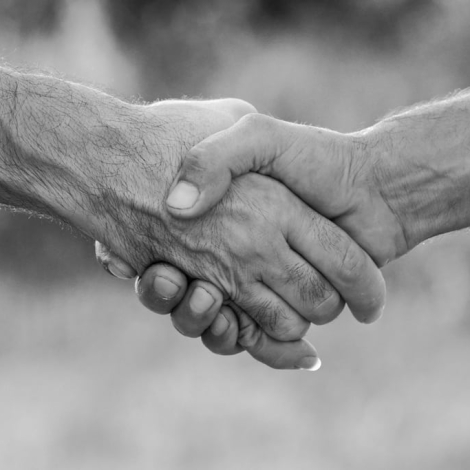Excerpted from Solving Problems that Matter (and Getting Paid for It): STEM Careers in Social Innovation and Global Sustainable Development and reprinted with permission
Often, job seekers focus on responding to published job opportunities as the key to gaining employment. However, a formal job advertisement can be a cursory step in the hiring process; employers usually have a candidate already in mind when they publish a job ad, which means many of those that apply are really wasting their time.
See, the hiring process starts back when either an existing team member leaves or a team obtains funding to hire for a new position. At that point, a meeting is called, and everyone on the team brainstorms on whom they should bring on. In this meeting, friends and friends of friends are mentioned as potential candidates, and frequently two to three people are identified as preferred candidates. Those people are contacted and invited to submit their applications for the position.
See, the hiring process starts back when either an existing team member leaves or a team obtains funding to hire for a new position.
Somewhere in here, the formal job description also goes to the human resources department to be posted online, which results in a flurry of CVs and cover letters from hopeful applications. However, the hiring team already has two to three people on their short list. These new, mostly unknown applicants are fighting for the one to two spots the hiring team might have in addition to their preferred candidates. Even then, those that applied online are at a major disadvantage—they not only have to prove their relevance, they have to prove that they are overwhelmingly better than the preferred candidates.
Now I am not saying this process is fair or ideal; I am describing what actually happens. So how can you be one of those preferred candidates—someone who is on a hiring team’s shortlist from the beginning? There is one proven way: build a large professional network through informational interviewing.
Connections Matter, So Informational Interview
Back in that initial candidate brainstorm, you want someone to mention your name, to suggest you as an ideal candidate, and to push for you to be considered for the job. The best way to do that is to be known to people in the field you want to work in by networking with them before there is even a job opening. How do you do that? Here is a three-step process:
#1 Have a Solid Pitch
Many job seekers are not sure what they want to do, or they are focused on either the tasks, like business development or project management, or the sector, like health or education, that they want to work in. You actually need both.
So your first step is to think about your desires. Develop an elevator pitch about your interests—you need to be able to say that you want to have a certain role in a specific sector (e.g., a project manager working in education or in business development for health services) and explain why that is your focus in a short, targeted paragraph or less. This helps those you interview with understand your interest and relevance, and when they should think about you in that new-hire brainstorming.
The worst outcome of the job-seeking process is for you to think you have just won your dream job, only to find out it is actually your hell job.
Yet you do not need to fret that you have to have your end goal determined when you first start informational interviewing. A key component of the process is for you to constantly be assessing what your interviewees say and how that might change your goals.
It is quite all right to start with the expectation you want to do X with Y and then over time realize you really are interested in A with B. In fact, the worst outcome of the job-seeking process is for you to think you have just won your dream job, only to find out it is actually your hell job, and have to start this whole process all over again, while hating your workdays.
# 2 Start Informational Interviewing
Most recent graduates do not have a large professional network, and that is okay. You do have family and friends, so start informational interviewing with them. There are multiple online resources that tell you what an informational interview is and how to do one, though often two key points are left out: ask for names and be sure to follow up.
During an informational interview, make a point to learn about a person’s professional interests and their peers. Ask what they want to work on, which may be different from what they are doing now, and for at least three people who are also in their field. You want to have three to four new contacts from every informational interview so that you can grow your network.
Add this information to a spreadsheet listing whom you have talked to, what the key points were, and whom they connected you with. This spreadsheet is core to building your professional network. You can keep it as a simple spreadsheet or get fancy and use customer relationship management software. Regardless, this database will help you continue to grow your network, understand its interconnectedness, and make connections among people.
#3 Build and Strengthen Your Network
Do not make the mistake of neglecting your contacts after you had an informational interview with them. Use your spreadsheet to track when you last contacted each person and be sure to reach back out to them and send along relevant news or connections that they would appreciate.
One of the most effective actions is to introduce them to new people in your network that you think could be relevant to them. While most peer groups are relatively small, there is constant turnover, and people are always doing new things. Making the connection between two people is both helpful to them and can be a powerful reminder that you were listening in your informational interview and still think of that person after the interview.
You want to make sure your connections remember you and think highly of you. You are not going on these interviews for fun. This is work, and you should be focused on creating long-term value for your connections so that when they are in that new-hire brainstorming session, they remember your name and put you forth as a candidate.
Work at Networking and Informational Interviewing
I run a career coaching service dedicated to my subspecialty, ICT4Djobs.com, and I tell all of those I coach to network and informational interview. Yet it is only a few who fully understand that you have to work at both. You should aim to have five to ten informational interviews a week—yes, at least one a day—to truly get the most from the interviewing experience. I practice what I preach too. I did over 400 informational interviews over two years back in 2002–2004 to break into the international development industry.
Yes, that sounds daunting, but the results speak for themselves. The conventional wisdom is that it takes one month for every $10,000 in salary to find a job. So if you want a $100,000 job, it will take you ten months to get it—if you are working at it full-time. If you put in part-time effort, expect it to take much, much longer.
Your Network Is Your Asset
Now let us fast-forward to your first day at your new job. You are so excited to start, and yet just after you walk in the door as a new employee, your boss hands you a huge project that you need to finish as soon as possible. No need to stress. You developed a wide, deep network during the informational interview process, and now it is time to put it to good use.
You will find that all of those informational interviews laid the groundwork for an amazing support network that can now help you succeed at your dream job.
Open up your spreadsheet and contact those that are relevant to this new task. Thank them for helping you land this cool new job, and tell them the project you are working on and the help you need. You will find that all of those informational interviews laid the groundwork for an amazing support network that can now help you succeed at your dream job. Congratulations!
 Wayan Vota is a senior mobile advisor at FHI 360 and has over twenty years’ experience using technology in international development. He cofounded ICT4Djobs, the premier career network for the information and communications technology for development (ICT4D) specialty, and ICTworks, ICT4Drinks, Technology Salon, Educational Technology Debate, OLPC News, Kurante, and a few other things. He also teaches ICT4D at Johns Hopkins University–School of Advanced International Studies.
Wayan Vota is a senior mobile advisor at FHI 360 and has over twenty years’ experience using technology in international development. He cofounded ICT4Djobs, the premier career network for the information and communications technology for development (ICT4D) specialty, and ICTworks, ICT4Drinks, Technology Salon, Educational Technology Debate, OLPC News, Kurante, and a few other things. He also teaches ICT4D at Johns Hopkins University–School of Advanced International Studies.
See also: Five questions with Wayan Vota


Well I now know what to do if our paths ever cross. This perception of a personal network as hollow mechanistic process fillled out a spreadsheet is both shallow in the extreme and career-limiting. The heart of your personal network should be a genuine interest in other people; sufficient self-esteem to know what you can offer and your limitations are; and treat everyone as you yourself would like to be treated. Do you want to be a line on someone’s spreadsheet? That your only value to the owner of that spreadsheet is as a stone to be stepped on for their career? Treat everyone you meet openness, respect and the hope you might just be about to make a lifelong friend who you can do business with, and you won’t go far wrong.